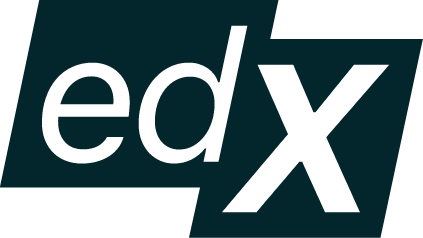
As a new or experienced professional in the field of public health, there is a lot to consider when searching for a new position. One of the most important things to consider is the interview. When you walk into an interview, you have the ability to paint a vivid picture of who you are, what professional skills you possess, and why you are the best candidate for the roles you seek. In order to do this effectively, you have to be prepared.
Why not start preparing today! One way to do that is to familiarize yourself with common public health interview questions and how to answer them effectively.
This guide provides a list of sample interview questions and tips on preparing and building your responses to common public health interview questions.
Interview questions by category
We have categorized the interview questions into three sections. Feel free to read them all or jump to the sections that are most relevant to your career progression.
Tell me about yourself.
This is the most common and one of the most dreaded interview questions because it is so broad. Here is a useful formula for developing an answer to this question:
- Present — Talk a little bit about your current role or educational program, the scope of it, and perhaps a recent accomplishment.
- Past — Tell the interviewer about your background experience and education. Be sure to mention previous experience that’s relevant to the job and company you’re applying to.
- Future — Segue into what you’re looking to do next. Tell the interviewer why you’re interested in this role and why you’re a great value-add.
Your snapshot should show the interviewer how your experiences equip you with the skills to succeed at their company and why you are interested in the specific role.
Pro tip:
Your answer to “Tell me about yourself” could determine the direction of the interview. Typically, what the interviewer asks next will be a follow-up question based on your answer. It’s almost like you get to control where the interview goes! It is highly recommended that you prepare your answer to this question before each interview. Practice delivering your answer to ensure it is relevant and leads to follow-up questions that allow you to shine.
What are your greatest strengths? What do you consider to be your weaknesses?
Describing your strengths gives you an opportunity to brag about what makes you awesome and why you’re a great value-add to the company. Discuss 1–3 specific qualities that are relevant to this position and illustrate them with examples. Stories are always more memorable than generalizations.
When an interviewer asks you about your weaknesses, they’re trying to get a gauge on your self-awareness and honesty. Strike a balance by thinking of something that you struggle with but that you’re currently working to improve. For example, maybe you’ve never been strong at public speaking, but you’ve recently volunteered to run meetings to help you get more comfortable when addressing a crowd.
Why do you want to work at this company?
Demonstrate that you’ve researched the company and talk about the unique aspects of the company that made you want to apply for a role. You can point out the organization’s growth or innovation while honing in on your own opportunities for future career growth and how the company can contribute to it. Keep your reply high-level and not overly personal. Be specific and enthusiastic in explaining why you want to work for the company.
Where do you see yourself in five years?
If asked this question, be honest and specific about your future goals. The hiring manager wants to know: a) if you’ve set realistic expectations for your career, b) if you have ambition, and c) if the position aligns with your goals and growth. Think realistically about where this position could take you and answer along those lines. If the position isn’t necessarily a one-way ticket to your aspirations, it’s okay to say that you’re not quite sure what the future holds, but that you see this experience playing an important role in helping you make that decision.
What are your salary expectations?
The number one rule of answering this question is to prepare thoroughly ahead of time. Do your research on what similar roles pay by using websites like Payscale.com or Salary.com and reach out to your network. Be sure to take your experience, education, skills, and personal needs into account. From there, choose from one of three strategies to answer the question:
- Give a salary range — keep the bottom of your stated range toward the mid-to-high point of what you’re actually hoping to get.
- Flip the question — you can say something like: “That’s a great question. Can you share the range you have in mind for this role?”
- Delay answering — tell your interviewer that you’d like to learn more about the role or the rest of the compensation package before discussing pay.
Do you have any questions for me?
You probably already know that an interview isn’t just a chance for a hiring manager to learn more about you, it’s also an opportunity to determine whether a job is the right fit from your perspective. What do you want to know about the position? The company? The department? The team? You’ll cover a lot of this in the actual interview, so have some less common questions prepared.
Expert advice
“You should always ask questions during the interview. You are interviewing the company too! Ask questions to identify values and other valuable insights that align with your own values and career goals. In addition to asking about the company and team, ask the interviewer how well they enjoy working at the company. Use everything you learn to determine if the company is the right place for you.”
– Tramaine I., career expert at edX

What inspired you to pursue a career in public health?
There are many reasons why someone might pursue a career in public health. Some people are inspired by a personal experience, such as a family member’s battle with an illness. Others may be motivated by a desire to help others and make a difference in their community. The hiring manager is seeking to understand your motivations, personal experiences, and reasons for choosing a career in public health. This is a great time to share your passion for and commitment to the field. Your answer should emphasize your desire to be of service to the community.
What are some of the most important skills for a public health professional to have?
This question helps the hiring manager determine if you have the skills and abilities to succeed in this role. When answering the question, highlight your key strengths and demonstrate their relevance to the current position. Also, discuss why you believe your key strengths are important to succeeding in the public health field.
Describe a time when you had to communicate complex public health information to a wide audience.
Public health professionals are expected to communicate complex public health information to a wide variety of stakeholders, from members of the public to government officials. This requires a deep understanding of the information being communicated and the ability to convey it in a way that is easily understood. Use the STAR Method to develop a succinct answer that provides specific details on what you did or how you would handle this situation. (Learn more about the STAR Method in our Behavioral interview prep guide.)
Pro tip:
Embrace the opportunity to address behavioral questions even if you’re entering the field without prior professional experience. Showcase your grasp of concepts gained through your coursework and articulate how you intend to translate this knowledge into real-world applications. Draw on your diverse personal and professional background to craft a narrative using the STAR framework. By sharing concrete examples, you can demonstrate your achievements and contributions, thereby highlighting the valuable skills you bring to the table.
Explain your understanding of epidemiology and how it applies to public health.
Questions like this are designed to assess your knowledge of specific aspects of public health. Professionals in the field need to understand how epidemiology works and how it relates to their job. Start by explaining what epidemiology is and how it relates to public health. Then, discuss your understanding of the different aspects of epidemiology such as disease transmission, risk factors, surveillance, and control measures. You can also talk about how you have used epidemiological methods in previous positions or projects. Finally, explain how epidemiology can be used to inform public health interventions and policies.
How well do you think you can handle long hours, irregular shifts and potentially stressful situations?
Public health professionals often work long hours and irregular shifts. They also have to handle stressful situations, such as outbreaks of disease or natural disasters. Hiring managers ask this question to make sure you are prepared for the challenges that come with working in public health. In your answer, explain how you plan to manage these challenges. Use the STAR framework to share a story about a time when you worked long hours or faced a stressful situation. Explain what you did to stay motivated and productive during those times.
Do you have any experience with data analysis?
This question can help the hiring manager determine your experience with public health data and how you use it to make decisions. If you have previous experience analyzing data, describe what types of data you analyzed and how you used that information to improve a program or department. If you don’t have any experience with data analysis, you can talk about other ways you have used data to inform your decision-making process.
Expert advice
“Be honest about who you are! Don’t lie if there’s something you don’t know [or haven’t done]. Instead, try to think outside the box and if you don’t know the answer, provide them with alternative examples of how you get things done.”
– Arlette V., career expert at edX

When is it appropriate to share public health information and when should you keep it confidential?
The hiring manager may ask you this question to assess your ability to balance the public’s right to know with their need for privacy. Your answer should show that you understand how to keep information confidential while also sharing it when necessary. To demonstrate your knowledge, provide examples or share a story about a time when you had to actively balance the public’s right to know with their need for privacy.
How often do you update your knowledge of public health policies and procedures?
Staying abreast of current public health information is very important for your longevity in the field. The hiring manager wants to better understand how much you value your education and training. They want to know that you’re committed to continuing your learning throughout your career and if you have a plan for doing so. In your answer, explain what steps you take to stay up to date on public health news and information. Feel free to share publications, websites, or other resources you use to stay informed.
What do you see as the most pressing issue that will shape the landscape and future of public health? What strategy would you recommend to tackle the issue?
Hiring managers ask this question to investigate your perspective on public health, its future, and how that aligns with the values of their organization. If the organization values a community-focused, collaborative approach, your answers should showcase ways in which you also align with that approach. Strategies you choose should, whenever possible, draw on evidence-based research acquired through your coursework.
How do you handle difficult conversations with stakeholders about public health issues?
The hiring manager is trying to assess how well you communicate under pressure which is important to your success in public health. Start by talking about your experience handling difficult conversations related to public health issues. Provide a specific situation you faced and how you handled it, emphasizing the strategies you used to ensure that all parties were heard and understood. Explain any techniques you use to remain calm and professional during challenging discussions, such as active listening or taking breaks when needed. Finally, emphasize your commitment to finding solutions that work for everyone involved in the conversation.
Expert advice
“[When having difficult conversations] it can be quite beneficial to have a distinct goal…since it provides focus, clarity, mutual understanding, measurement, and follow-up. Remember that adaptability is essential to sustaining a productive discussion while still pursuing the desired outcome.”
– Andrea B., career expert at edX

How do you approach creating public health campaigns that are culturally sensitive and appropriate?
Public health professionals are expected to educate the public about important health topics in a way that’s culturally sensitive and appropriate. When answering this question, start by discussing your prior experience creating public health campaigns and how you have tailored them to different cultural groups. Explain any research or surveys that you have conducted or used in order to understand the needs of a particular population. You can also talk about any courses or workshops that you have taken related to cultural competence, as well as any strategies you use to ensure your messages are respectful and appropriate. Emphasize the importance of being able to communicate effectively with diverse populations when it comes to public health initiatives.
Describe a time when you had to evaluate the effectiveness of a public health program. What methods did you use and what was the outcome?
Part of your responsibility as a public health professional includes implementation and evaluation of programs that aim to improve the health and safety of communities. This question is designed to gauge your understanding of how public health programs are evaluated and how you measure the impact of their work. It also gives the interviewer insight into your critical thinking skills, research methods, and data analysis abilities. Use the STAR framework to describe a time when you had to evaluate a public health program. Explain the various methods you used to evaluate the program and its impact.
How do you ensure that public health initiatives are implemented ethically and responsibly?
To answer this question, discuss your understanding of ethical and responsible practices when it comes to public health initiatives. Talk about how you have implemented initiatives in the past with an emphasis on ensuring they are conducted ethically and responsibly. You can also explain any measures you take to ensure public health initiatives are implemented correctly, such as double-checking data and consulting with experts before making decisions. Additionally, you could mention any courses or training you’ve taken related to ethics and responsibility in public health.
Pro tip:
Before your interview, take some time to reflect on past and current roles that required you to use the skills and competencies associated with the role you’re seeking. Recall situations where you demonstrated strengths, achieved significant positive outcomes, or learned valuable lessons that allowed you to excel in your career. Share those stories to highlight why you’re the best candidate for the job. An interview is a perfectly acceptable place to brag about yourself.
Describe a time when you had to make a difficult decision related to public health policy.
Public health professionals are responsible for making decisions that will affect the well-being of entire communities. This can be a difficult and complicated process. Hiring managers want to know that you can make difficult decisions that are based on sound reasoning and evidence. Use the STAR framework to structure your story. Start by describing the situation and why it was difficult. Then, explain how you went about making your decision. Talk about the research and evidence you used to inform your decision, as well as any stakeholder input that you considered. Finally, discuss the outcome of your decision and what you learned from the experience.
Tell me about a time when you disagreed with a decision regarding or the handling of a public health issue. How did you handle this situation?
In public health, lots of stakeholders weigh in on decisions and sometimes you will not agree. The hiring manager wants to know whether you can disagree productively, professionally, and with sound evidence to back up your rationale. Use the STAR framework to share a story about a time when you disagreed with decisions made by your managers or other stakeholders and how your actions and words eventually made a positive difference on the outcome of the situation — whether it was a relationship-related outcome or an outcome related to the public health issue.
Why are you leaving your current organization?
This can be a tricky question to answer but the key is to always remain positive. When discussing your current company or environment, give a truthful reason for leaving, but do not bring negativity into the discussion. Instead, focus your answer on developing and expanding your career as a public health professional. Share what you’ve learned about this potential new employer and how well it fits your goals, strengths, and experience.



